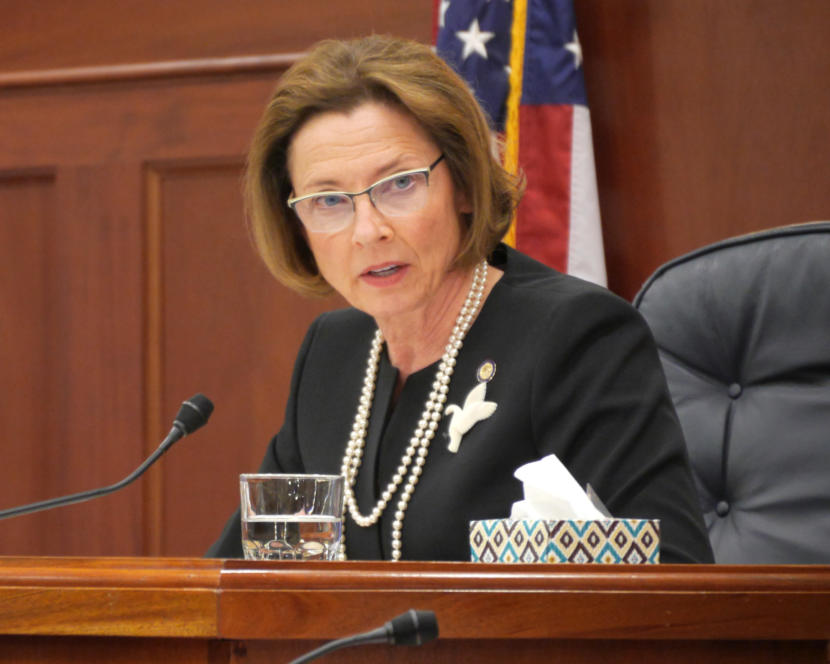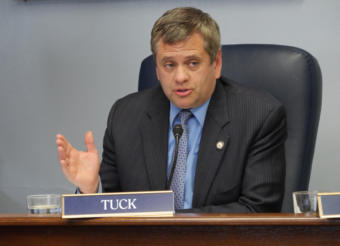
Members of a key legislative committee disagree on whether the Alaska Legislature must reconvene to approve Gov. Mike Dunleavy’s requests to spend federal COVID-19 relief.
Alaska Senate President Cathy Giessel said the Legislative Budget and Audit Committee can act on all of the requests on Wednesday.
“Right now, we are in the middle of a disaster that is unprecedented — like has never happened before in our state — and this is the time, when we have the ability to distribute these funds, to get them out, to get our economy moving again,” Giessel said, describing the position of the committee’s five senators.

But the committee’s chair disagrees. Anchorage Democratic Rep. Chris Tuck said the committee lacks the authority to act on nearly $1 billion of the requests.
“So the problem that I have is that this is an illegal process,” Tuck said.
While a law allows the committee to agree to federal spending for items that were included in the budget, Tuck said there are no items in the budget that would allow the committee to accept the bulk of the CARES Act funding.
“The programs aren’t established. That’s the Legislature’s constitutional responsibility,” Tuck said. “And I don’t want to skirt around that responsibility. We are in session right now. There’s no reason why we can’t go down there and get our work done.”
Tuck said all Alaskans’ legislators should have the opportunity to weigh in on how the money should be spent. He doesn’t plan on putting payments to local communities and small businesses on Wednesday’s agenda.
Giessel said that if the committee were to approve the funds, it would be “pretty far-fetched” for the Legislature to vote against ratifying these actions in the future, considering the clear need for economic relief. And she also rejected the idea that it would set a bad precedent for governors to accept federal aid without legislative support, considering the uniqueness of the current crisis.
Tuck said it would be impossible to know whether the Legislature would approve the proposals without polling all 60 lawmakers. And he said it would set an illegal precedent.
Dunleavy revised his requests last week. They include $257 million in community financial relief; more than $311 million in 123 separate requests for aid to specific communities; and $290 million in small business relief. The governor also requested the committee approve $10 million to address homelessness; $49 million for rural airports; and $3 million for costs at the Whittier tunnel.
